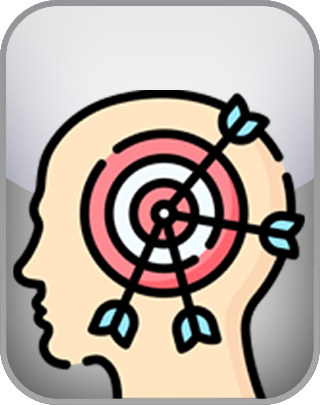Obsessive Belief Test (OBT)
The Obsessive Belief Test, derived from the Obsessive Belief Questionnaire (OBQ) developed by G. Steketee et al. (2005) serves as a valuable tool for assessing personality traits related to obsessive belief. This instrument is designed to identify behavioral and emotional patterns that may influence interpersonal interactions, emotional well-being, and daily functioning. Rather than focusing on diagnostic labels, the test aims to facilitate self-assessment and provide insights into the underlying factors shaping individual experiences. It offers a structured approach to understanding the dynamics of social behavior and its impact on various aspects of life.
To take the test, enter your input below.
Question 1 of 44
I must work to my full potential at all times.
| Disagree | Agree |
NEXT
The IDRlabs Obsessive Belief Test was developed by IDRlabs, based on the Obsessive Belief Questionnaire (OBQ).
Obsessive belief refers to persistent, intrusive thoughts or convictions that often feel uncontrollable and irrational. These beliefs can be excessively focused on a particular idea, concern, or fear and may not align with reality. Individuals experiencing obsessive beliefs typically feel compelled to give these thoughts significant attention, despite recognizing that they may be unreasonable. This constant mental focus can disrupt daily functioning, leading to heightened anxiety, distress, and difficulty in making decisions or taking action.
These beliefs are commonly seen in disorders such as obsessive-compulsive disorder (OCD), where individuals may engage in compulsive behaviors to alleviate the anxiety caused by their obsessive thoughts. Obsessive beliefs can also appear in various forms of anxiety or mood disorders, including generalized anxiety disorder (GAD) and depression. In some cases, obsessive beliefs may center on perfectionism, moral concerns, or exaggerated fears about personal safety or the safety of others.
The underlying cause of obsessive beliefs often involves a combination of genetic, psychological, and environmental factors. Brain structure and function, particularly the areas involved in processing fear and anxiety, are believed to play a role. Cognitive factors, such as a tendency to overestimate threat or difficulty tolerating uncertainty, also contribute to the development of obsessive thinking. Stressful life events or trauma can trigger or exacerbate these beliefs, especially in individuals predisposed to anxiety disorders.
Interventions to address obsessive beliefs typically involve cognitive-behavioral therapy (CBT), specifically a subtype called exposure and response prevention (ERP). This therapeutic approach helps individuals confront their obsessive thoughts gradually and learn to tolerate the anxiety without resorting to compulsive behaviors or avoidance. In some cases, medications such as selective serotonin reuptake inhibitors (SSRIs) may be prescribed to help regulate the brain’s response to obsessive thinking.
As the publishers of this free test, which allows you to screen yourself for obsessive beliefs, we strive to make the test as reliable and valid as possible by subjecting this test to statistical controls and validation. However, free online quizzes such as the present test do not provide professional assessments or recommendations of any kind; the test is provided entirely “as-is.” For more information about any of our online tests and quizzes, please consult our Terms of Service.

